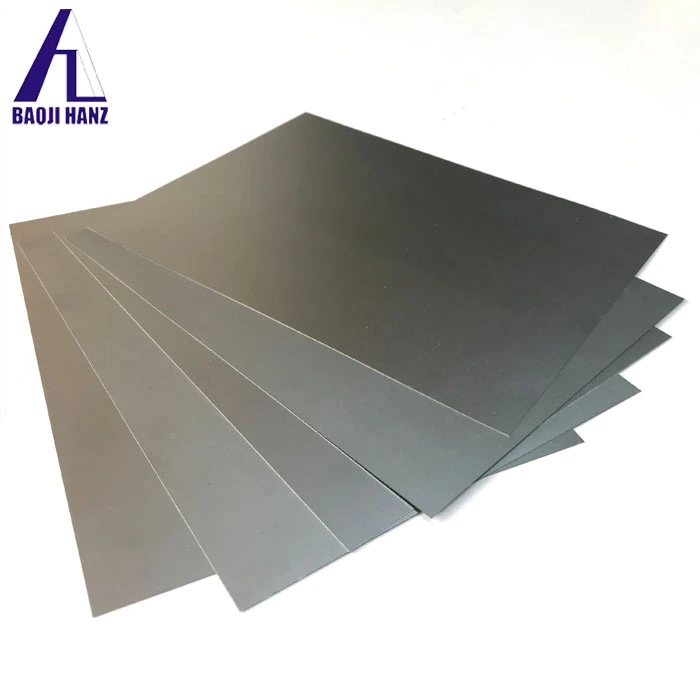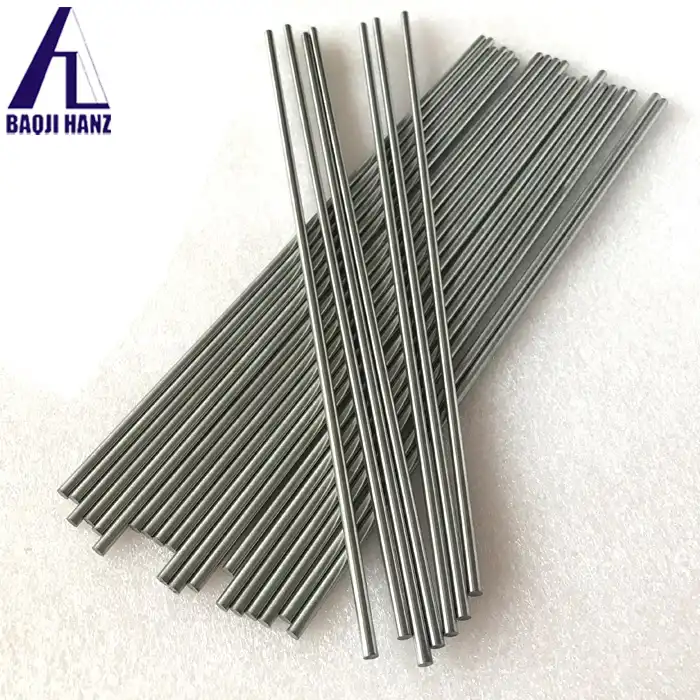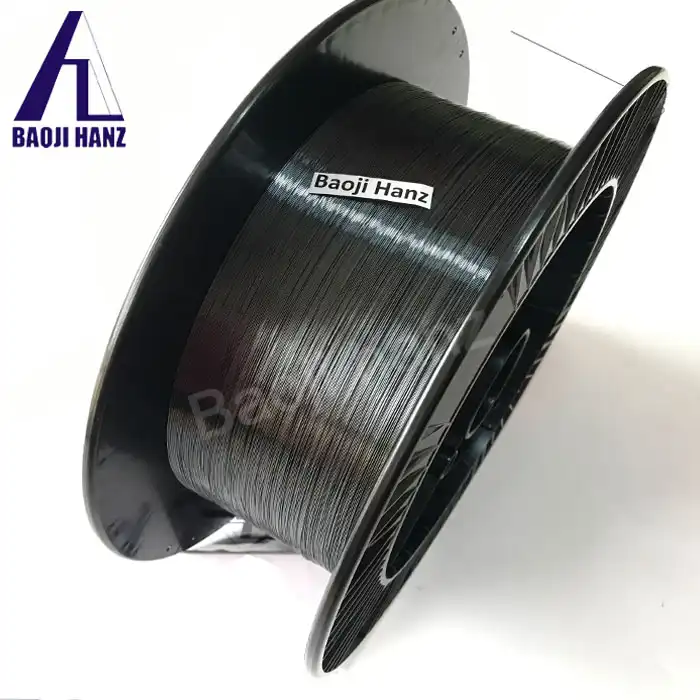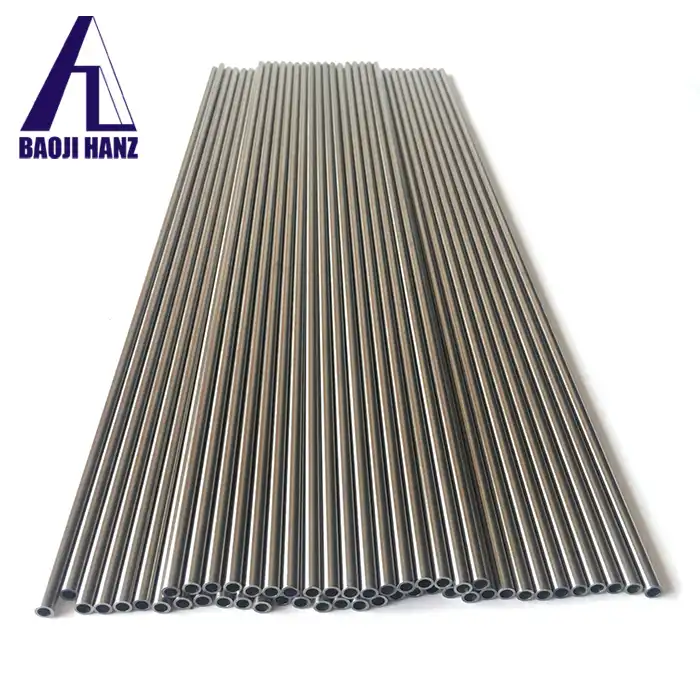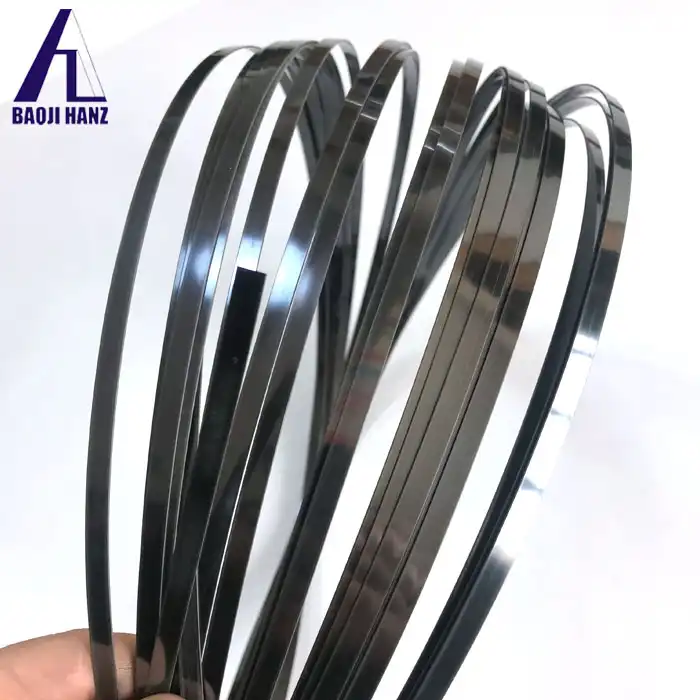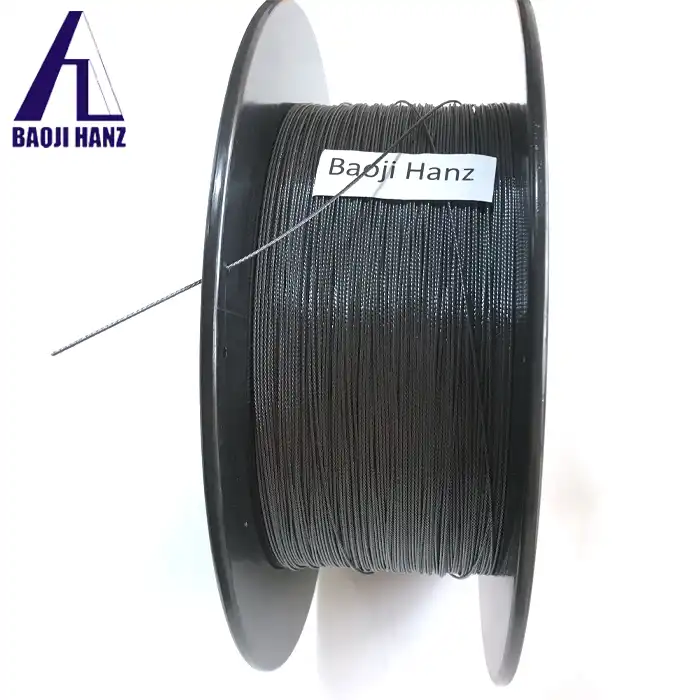How do One Way Nickel Titanium Springs work?
2025-05-06 21:57:29
One Way Nickel Titanium Springs represent a remarkable innovation in materials science, functioning through the unique shape memory properties of nickel-titanium alloy (Nitinol). Unlike conventional springs that operate based on elastic deformation, One Way Nickel Titanium Springs utilize a thermally activated shape memory effect. These specialized springs are engineered to "remember" a pre-programmed shape, which they automatically recover when heated above their transformation temperature. The one-way memory effect allows these springs to transform from a deformed state at lower temperatures back to their original configuration when heated, but they do not spontaneously revert when cooled again, requiring external force for subsequent deformation cycles.

The Science Behind One Way Nickel Titanium Springs
Crystalline Structure Transformation
One Way Nickel Titanium Springs derive their remarkable functionality from the unique crystalline phase transformations occurring within the Nitinol material. At the microscopic level, these springs undergo a reversible solid-state phase transformation between two different crystal structures: martensite at lower temperatures and austenite at higher temperatures. When a One Way Nickel Titanium Spring is in its martensitic phase, it can be easily deformed with relatively little force. However, upon heating above its transformation temperature (typically between 70°C and 130°C depending on the specific composition), the atomic structure reorganizes into the austenitic phase, causing the spring to "remember" and return to its pre-programmed shape. This transformation occurs because the nickel-titanium alloy, composed of approximately 55% nickel and 45% titanium, has the unique ability to rearrange its atomic structure in response to temperature changes without compromising its mechanical integrity. The material's high melting point of 1240-1310°C ensures that these transformations occur well within safe operational parameters, allowing the One Way Nickel Titanium Spring to maintain its functional properties in applications ranging from -200°C to +100°C depending on the specific design requirements.
Thermal Activation Process
The thermal activation process of One Way Nickel Titanium Springs involves a precise sequence of events that enables their unique functionality. When these springs are exposed to temperatures above their transformation threshold, they undergo a rapid and powerful shape recovery process that generates significant force. This process begins when thermal energy causes the nickel-titanium crystal lattice to reorganize from its deformed martensitic structure into its memorized austenitic configuration. The transformation is not instantaneous but occurs across a temperature range, with the spring gradually exerting increasing force as it approaches complete transformation. Baoji Hanz Metal Material Co., Ltd. engineers these springs with precise control over their activation temperatures, allowing for customized responses based on application requirements. The company's advanced manufacturing techniques ensure that their One Way Nickel Titanium Springs deliver consistent performance with transformation temperatures calibrated to within ±5°C. This thermal activation process gives these springs a distinct advantage over conventional mechanical springs, as they can generate approximately 3-5 times more recovery stress (up to 1050 MPa) than similarly sized steel springs, despite having a lower density of 6.45 g/cm³. This exceptional energy density makes them ideal for applications where space constraints exist but significant force is required upon activation.
Unidirectional Memory Effect Characteristics
The unidirectional memory effect that characterizes One Way Nickel Titanium Springs represents a specialized subset of shape memory behavior. Unlike two-way memory alloys that can remember shapes at both high and low temperatures, these one-way springs "remember" only their high-temperature austenitic shape. After heating activates the shape recovery, the spring remains in this configuration even when cooled below its transformation temperature, unless mechanically deformed again. This one-way behavior occurs because the material has been specifically trained through a process called "shape-setting," where the desired spring configuration is heat-treated at temperatures around 500°C while physically constrained in the target shape. The One Way Nickel Titanium Springs manufactured by Baoji Hanz undergo rigorous quality control to ensure consistent memory effect performance, with each batch tested to verify complete shape recovery within specified temperature parameters. Their springs are available in wire gauges ranging from 0.2 to 12 mm, with convolution spacing of ≥1.5 mm, allowing for precise design specifications. The unidirectional nature of these springs makes them particularly valuable in single-activation applications where a controlled, one-time deployment is required, such as in safety mechanisms, aerospace deployment systems, or single-use medical devices. Their fatigue resistance ensures they maintain their functional integrity even after storage in a deformed state for extended periods, ready to activate when exposed to the appropriate thermal conditions.
Manufacturing and Material Properties of One Way Nickel Titanium Springs
Precision Alloy Composition
Creating effective One Way Nickel Titanium Springs begins with precise control over the alloy composition, which directly influences the spring's functional characteristics. Baoji Hanz Metal Material Co., Ltd. utilizes advanced metallurgical techniques to ensure their nickel-titanium alloys maintain the optimal balance of 55% nickel and 45% titanium, with variations controlled to within 0.1% to achieve consistent transformation temperatures. This precise composition control is critical because even minor deviations can significantly alter the spring's activation temperature and mechanical properties. The company employs vacuum induction melting followed by vacuum arc remelting to create ultra-pure NiTi ingots with minimal oxygen and carbon contamination, ensuring the highest quality raw material for spring production. The alloy's inherent properties include exceptional corrosion resistance comparable to titanium, making One Way Nickel Titanium Springs ideal for applications in humid or chemically aggressive environments. With a density of 6.45 g/cm³—approximately 20% lighter than stainless steel—these springs offer substantial weight advantages in aerospace and portable electronic applications. Additionally, the material's biocompatibility makes it particularly valuable for medical applications, where direct contact with tissue requires materials free from adverse biological reactions. Baoji Hanz's commitment to quality is evident in their ISO 9001:2008 certification and comprehensive material testing protocols that verify each batch of spring material meets stringent compositional and performance standards before proceeding to the manufacturing stage.
Advanced Manufacturing Techniques
The production of high-performance One Way Nickel Titanium Springs requires sophisticated manufacturing techniques that address the unique challenges posed by this material. Baoji Hanz Metal Material Co., Ltd. employs a multi-stage process beginning with precision wire drawing, where the NiTi alloy is carefully reduced to the required diameter (ranging from 0.2 to 12 mm) while maintaining tight dimensional tolerances. The wire undergoes intermediate annealing treatments between drawing steps to prevent work hardening and maintain its shape memory properties. The spring forming process utilizes specialized winding equipment that controls tension, pitch, and coil diameter with exceptional precision. Following mechanical forming, the springs undergo a critical shape-setting heat treatment at temperatures between 450-550°C in custom-designed programmable furnaces that maintain temperature uniformity to within ±2°C throughout the chamber. This heat treatment "programs" the austenitic shape that the spring will remember when activated. Surface treatment options, including black oxide coating, pickling, or polishing, provide additional functional and aesthetic benefits while enhancing corrosion resistance. Baoji Hanz's advanced manufacturing capabilities allow for complex geometries beyond simple helical springs, including custom compression, extension, and torsion springs with variable pitch and diameter. Each production batch undergoes rigorous testing, including dimensional verification, transformation temperature analysis using Differential Scanning Calorimetry (DSC), and mechanical performance testing to ensure the One Way Nickel Titanium Springs meet or exceed customer specifications before shipment.
Performance Characteristics and Limitations
One Way Nickel Titanium Springs demonstrate exceptional performance characteristics that distinguish them from conventional spring materials, but also come with specific limitations that engineers must consider during application design. These springs can generate recovery stresses up to 1050 MPa during transformation, providing substantially higher force-to-volume ratios than traditional spring materials. Their superelastic properties allow for recoverable strain of up to 8%, compared to the typical 0.5% limit of stainless steel springs. Baoji Hanz manufactures springs capable of reliable operation across an impressive temperature range from -200°C to +100°C, though the specific transformation temperatures are tailored to application requirements. Fatigue resistance is another notable advantage, with properly designed One Way Nickel Titanium Springs capable of withstanding over 10 million compression cycles without significant degradation in performance. However, designers must account for certain limitations. The transformation temperature range typically spans 20-30°C, meaning activation is not instantaneous but occurs gradually across this range. Additionally, while these springs exhibit one-way memory effect, they require external force for reset after activation. The manufacturing cost exceeds that of conventional springs due to the specialized material and process requirements, though this is often offset by their superior performance and longevity. Baoji Hanz addresses these limitations through expert engineering consultation, helping customers optimize spring designs to achieve required functionality while minimizing potential drawbacks. Their minimum order quantity of 500 pieces reflects the specialized nature of these components, though they maintain inventory of standard sizes for faster delivery when custom designs aren't required.
Applications and Innovations in One Way Nickel Titanium Spring Technology
Medical Device Applications
One Way Nickel Titanium Springs have revolutionized numerous medical device applications, leveraging their unique properties to create innovative solutions for patient care. In minimally invasive surgical instruments, these springs enable sophisticated deployment mechanisms that activate at body temperature, allowing devices to navigate through small incisions or natural body openings in a compact form before expanding to their functional shape when positioned correctly. Cardiovascular applications represent a particularly important domain, with One Way Nickel Titanium Springs facilitating the precise deployment of vascular closure devices and embolic protection systems. The springs' biocompatibility, combined with their ability to generate consistent forces upon activation, makes them ideal for orthodontic applications where controlled, gentle pressure must be applied over extended periods. Baoji Hanz Metal Material Co., Ltd. collaborates closely with medical device manufacturers to develop specialized springs with transformation temperatures precisely calibrated to activate at or slightly below human body temperature (35-37°C), ensuring reliable performance in vivo. Their manufacturing process adheres to strict quality control protocols that meet medical-grade standards, with comprehensive documentation and traceability for each production batch. The material's excellent corrosion resistance in bodily fluids combined with its non-magnetic properties make One Way Nickel Titanium Springs compatible with MRI environments, further expanding their utility in implantable and semi-permanent medical devices. These springs have enabled significant advancements in single-use deployment tools for stents, filters, and occluders, where their one-way memory effect provides a simple yet effective mechanism for deploying complex structures within the body.
Industrial and Safety Applications
The industrial sector has embraced One Way Nickel Titanium Springs for a diverse range of safety and automation applications where temperature-activated functionality provides unique advantages. Fire safety systems represent a prominent application, with these springs incorporated into automatic door closers, ventilation dampers, and sprinkler systems that activate autonomously when ambient temperatures reach dangerous levels. The reliable one-way memory effect ensures these safety mechanisms deploy consistently without requiring external power sources or complex electronic triggers. In industrial process control, these springs function as thermal circuit breakers and overload protection devices that respond to excessive temperatures by breaking electrical connections or releasing pressure. Baoji Hanz Metal Material Co., Ltd. engineers springs with transformation temperatures ranging from 70°C to 130°C for industrial safety applications, providing precise activation thresholds based on risk assessments and safety standards. The springs' exceptional durability and resistance to harsh chemical environments make them suitable for petrochemical facilities, chemical processing plants, and mining operations where conventional activation mechanisms might fail due to corrosion or contamination. With a density of 6.45 g/cm³ and high strength-to-weight ratio, One Way Nickel Titanium Springs offer significant weight advantages in mobile equipment and transportation safety systems. Their vibration resistance and consistent performance across thousands of thermal cycles ensure long-term reliability even in challenging industrial environments. For applications requiring custom solutions, Baoji Hanz provides OEM services that can customize spring parameters including wire gauge (0.2-12mm), coil diameter, pitch, and activation temperature to meet specific industrial requirements, with minimum order quantities starting at 500 pieces.
Aerospace and Automotive Innovations
The demanding environments of aerospace and automotive applications have driven significant innovations in One Way Nickel Titanium Spring technology. In spacecraft and satellite systems, these springs enable deployment mechanisms for solar panels, antennas, and scientific instruments that must remain securely stowed during launch and then reliably deploy once in orbit. The weight savings compared to conventional deployment systems is substantial, with One Way Nickel Titanium Springs offering deployment force comparable to much heavier mechanical systems. For space applications, Baoji Hanz Metal Material Co., Ltd. produces specialized low-temperature variants that maintain their memory effect properties in the extreme cold of space, activating when exposed to sunlight or internal heating elements. In automotive safety systems, these springs provide backup mechanical activation for airbags, seatbelt pretensioners, and rollover protection structures, offering an additional safety layer independent of electronic sensors and triggers. Their ability to function after years of dormancy without degradation makes them ideal for emergency systems that must work flawlessly on first activation. The aerospace industry particularly values the springs' exceptional fatigue resistance and reliable operation across the temperature range of -200°C to +100°C, which encompasses most operational scenarios from high-altitude flight to ground operations in extreme climates. Baoji Hanz's advanced surface treatments, including specialized polishing and passive oxide layer enhancement, provide additional protection against the corrosive environments often encountered in automotive applications. The company's engineering team works closely with aerospace and automotive design engineers to develop One Way Nickel Titanium Springs that meet rigorous industry standards while providing the specific force profiles, activation temperatures, and dimensional requirements needed for each application.
Conclusion
One Way Nickel Titanium Springs represent a revolutionary advancement in spring technology, offering unique capabilities through their thermally activated shape memory properties. Their ability to generate significant force upon heating while maintaining a simple, reliable mechanism makes them invaluable across medical, industrial, and aerospace applications. The precise interplay between material composition, manufacturing techniques, and crystalline transformation creates springs with unmatched performance characteristics compared to conventional materials.
For those seeking to incorporate these remarkable components into your next project, Baoji Hanz Metal Material Co., Ltd. stands ready with 7 years of expertise in Nitinol Shape Memory Alloy technology. Our direct supply chain ensures cost-effective solutions, while our extensive inventory guarantees fast delivery of standard sizes. Need something specific? Our comprehensive OEM services can customize springs to your exact specifications – from wire gauge and coil dimensions to precise activation temperatures. Don't let conventional springs limit your design possibilities! Contact our expert team today at baojihanz-niti@hanztech.cn to discover how One Way Nickel Titanium Springs can transform your application.
Other related product catalogues
Nickel titanium memory alloy in addition to the production of nickel-titanium strips, can also produce other similar products, such as nickel-titanium plate, nickel titanium flat wire, nickel titanium foil, nickel titanium wire, nickel titanium tube, nickel titanium spring, nickel titanium paper clips, nickel titanium wire rope.
|
|
|
|
|
|
|
|
References
1. Johnson, A.D. & Duerig, T.W. (2023). Engineering Aspects of Shape Memory Alloys. Butterworth-Heinemann, London.
2. Miyazaki, S., Fu, Y.Q., & Huang, W.M. (2022). Thin Film Shape Memory Alloys: Fundamentals and Device Applications. Cambridge University Press.
3. Otsuka, K. & Wayman, C.M. (2021). Shape Memory Materials. Cambridge University Press.
4. Lagoudas, D.C. (2022). Shape Memory Alloys: Modeling and Engineering Applications. Springer Science & Business Media.
5. Duerig, T.W., Melton, K.N., & Stockel, D. (2023). Engineering Aspects of Shape Memory Alloys. Butterworth-Heinemann.
6. Kumar, P.K. & Lagoudas, D.C. (2021). Introduction to Shape Memory Alloys. In Shape Memory Alloys: Modeling and Engineering Applications (pp. 1-51). Springer.
